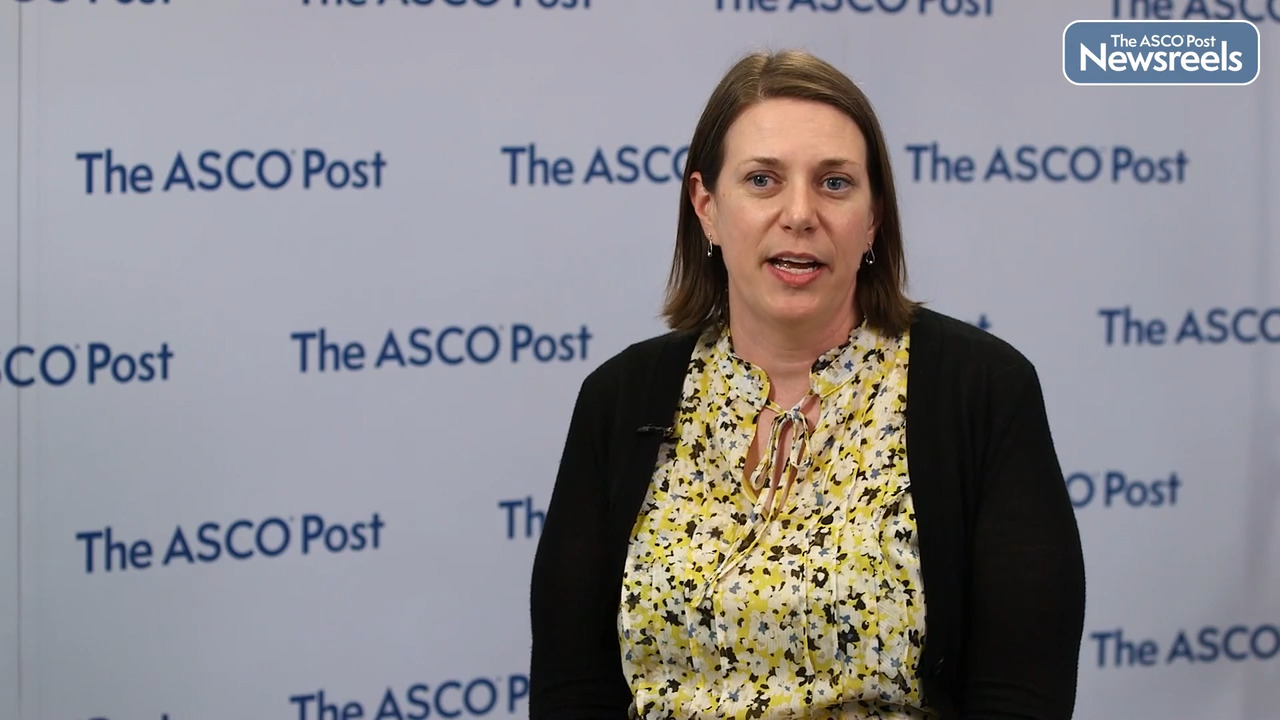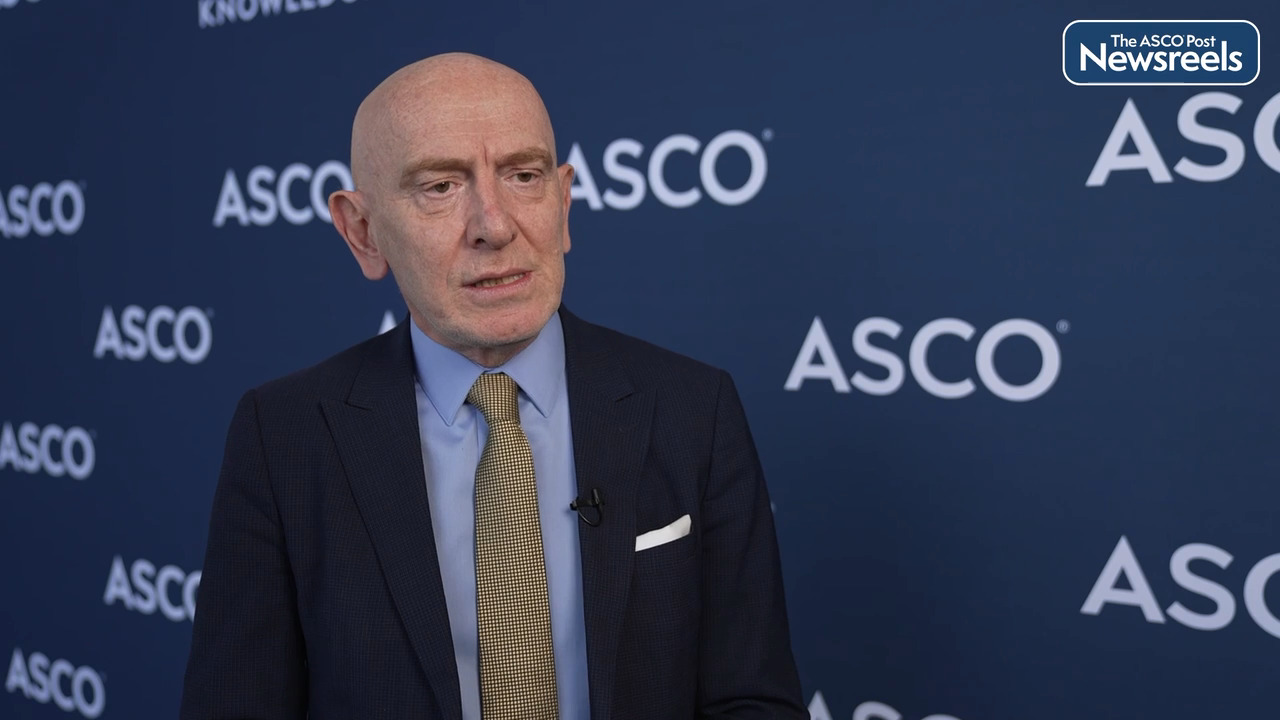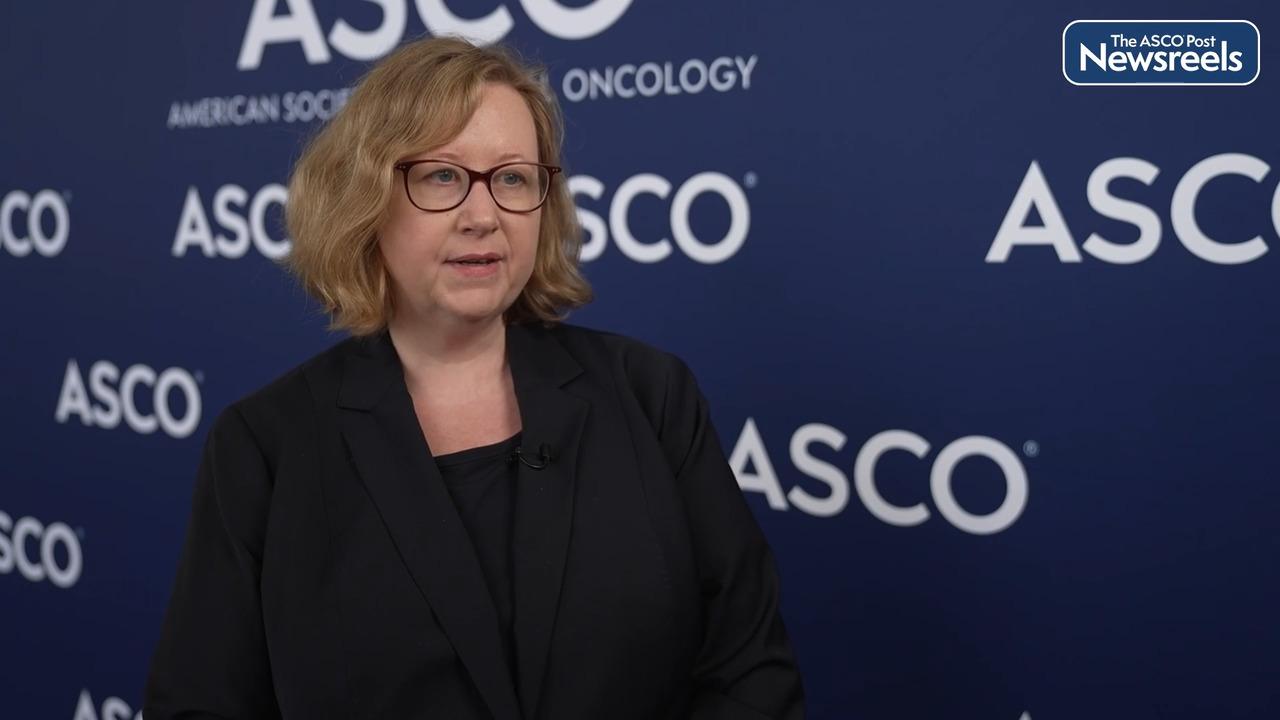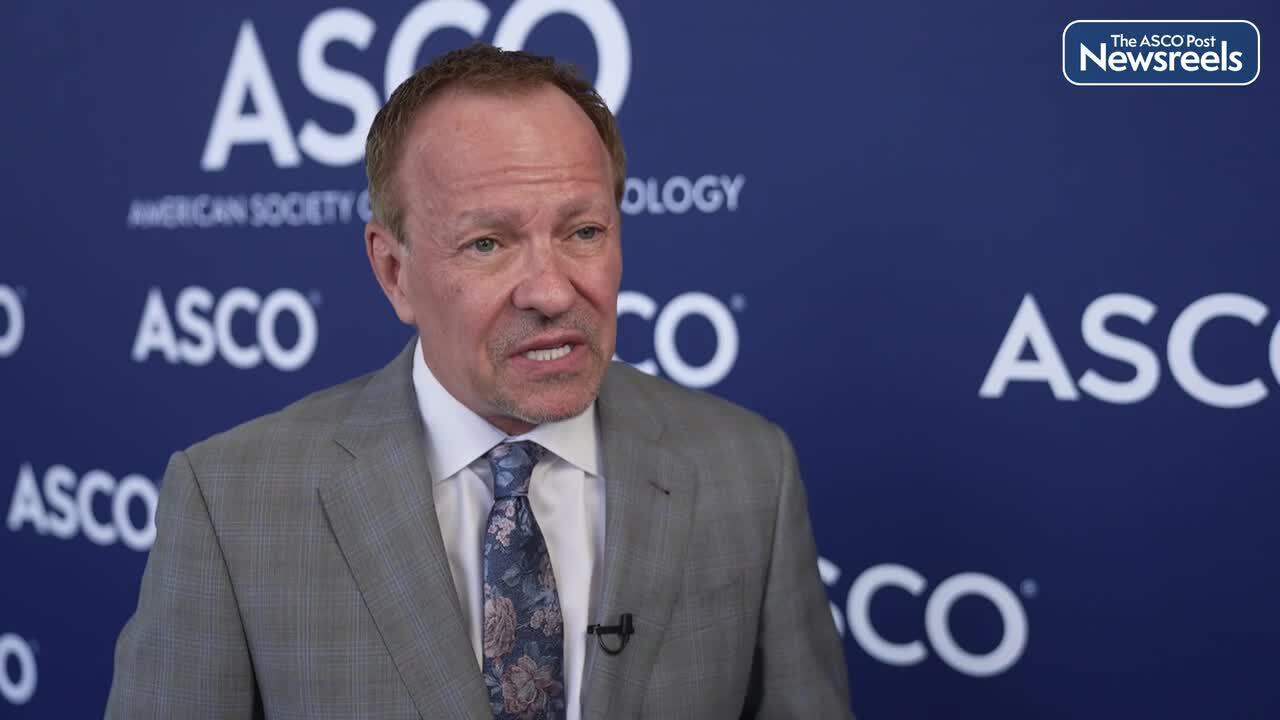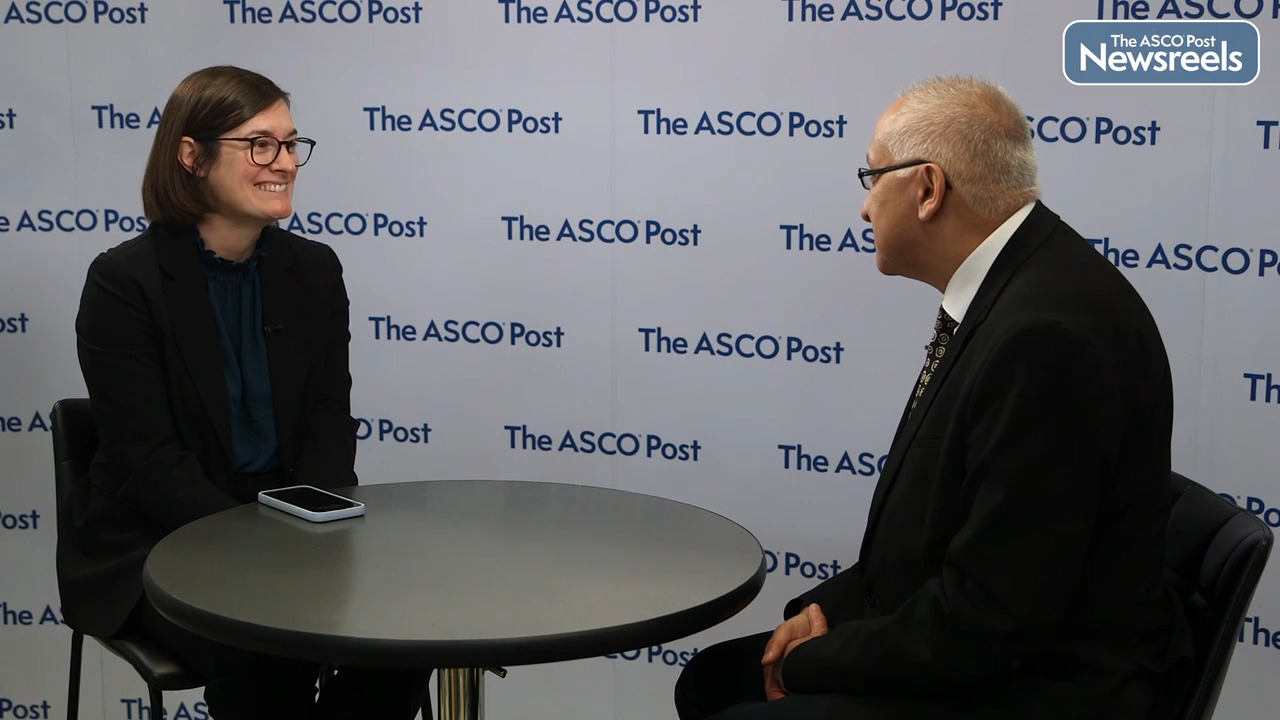Georgina V. Long, MD, PhD, on Resected Melanoma: Biomarkers for and Efficacy of Adjuvant Nivolumab vs Placebo
2023 ASCO Annual Meeting
Georgina V. Long, MD, PhD, of Melanoma Institute Australia and The University of Sydney, discusses new data showing that patients with resected stage IIB/C melanoma who were treated with adjuvant nivolumab had prolonged recurrence-free survival compared with placebo across all biomarker subgroups. The baseline biomarkers most predictive of prolonged recurrence-free survival with nivolumab were high interferon gamma score, high tumor mutational burden, CD8 T-cell infiltration, and low C-reactive protein (Abstract 9504).
Transcript
Disclaimer: This video transcript has not been proofread or edited and may contain errors.
Georgina V. Long:
Resected Stage 2B and 2C melanoma has a very poor prognosis. In fact, at five years, patients with stage 2C melanoma have a 45% risk of recurrence. And for stage 2B melanoma, 35% risk of recurrence. The survival of this group of patients is worse than that of stage 3A melanoma and the survival of stage 2C melanoma is equivalent to the survival of stage 3B melanoma. This is a poor prognostic group. Checkmate 76K explored adjuvant nivolumab versus placebo in resected stage 2B and 2C melanoma in patients who had undergone a wide local excision and a sentinel node biopsy, which was negative.
790 patients were randomized two to one to nivolumab versus placebo. We've already seen the relapse-free survival primary analysis last year, and there was a 58% reduction in the risk of recurrence with adjuvant nivolumab. We are now presenting the exploratory biomarker analysis from this trial. So baseline, primary melanoma tissue, and baseline CRP, serum CRP was correlated with outcome within each arm and versus each arm. And what we found was that for every biomarker subgroup, nivolumab improved the relapse-free survival over placebo.
And this included tumor mutation burden, interferon gamma, PD-L1 expression at baseline, CD8 infiltration at baseline, the CRP. So when we compared the prognostic biomarkers overall in the trial, we found that the two factors that were most important for prognosis, so predicting recurrence in the total trial population, that was the CRP and the stage. However, when we did our multivariate model to look at what was predictive of best outcome with adjuvant nivolumab over placebo, we found that the baseline biomarkers that were predictive or most predictive were the interferon gamma at baseline and the tumor mutation burden.
Our next steps are to make a multifactorial model, which includes both clinical and tissue biomarkers to predict outcome of patients with resected 2B and 2C melanoma treated with adjuvant nivolumab.
The ASCO Post Staff
Jennifer A. Woyach, MD, of The Ohio State University Comprehensive Cancer Center, discusses results of a phase III study showing that progression-free survival with ibrutinib plus obinutuzumab plus venetoclax is not superior to ibrutinib plus obinutuzumab for treatment-naive older patients with chronic lymphocytic leukemia (CLL) in the setting of the COVID-19 pandemic. Long-term follow-up will determine whether there are advantages to obinutuzumab plus venetoclax, with special attention to measurable residual disease and therapy discontinuation (Abstract 7500).
The ASCO Post Staff
Muhit Özcan, MD, of Turkey’s Ankara University School of Medicine, discusses phase II findings from the waveLINE-004 study. It showed that the antibody-drug conjugate zilovertamab vedotin had clinically meaningful antitumor activity in patients with relapsed or refractory diffuse large B-cell lymphoma (DLBCL) who experienced disease progression after, or have been ineligible for, autologous stem cell transplantation and/or chimeric antigen receptor T-cell therapy (Abstract 7531).
The ASCO Post Staff
Penelope Bradbury, MBChB, of Canada’s Princess Margaret Cancer Centre, discusses phase III findings showing that, in patients with treatment-naive unresectable pleural mesothelioma, cisplatin and pemetrexed with pembrolizumab improved median overall survival with acceptable tolerability (Abstract LBA8505).
The ASCO Post Staff
Bradley J. Monk, MD, of the University of Arizona, Phoenix, and Creighton University, discusses phase III findings from the KEYNOTE-826 study of overall survival results in patients with persistent, recurrent, or metastatic cervical cancer. Study participants received first-line treatment of pembrolizumab plus chemotherapy, with or without bevacizumab, which reduced the risk of death by up to 40% in three different subsets of patients (Abstract 5500).
The ASCO Post Staff
Bobbie J. Rimel, MD, of Cedars-Sinai Medical Center, and Mansoor R. Mirza, MD, of Denmark’s Rigshospitalet and Copenhagen University Hospital, discuss new findings on dostarlimab-gxly plus carboplatin/paclitaxel, which improved progression-free survival while maintaining health-related quality of life, further supporting its use as a standard of care in primary advanced or recurrent endometrial cancer (Abstract 5504).
